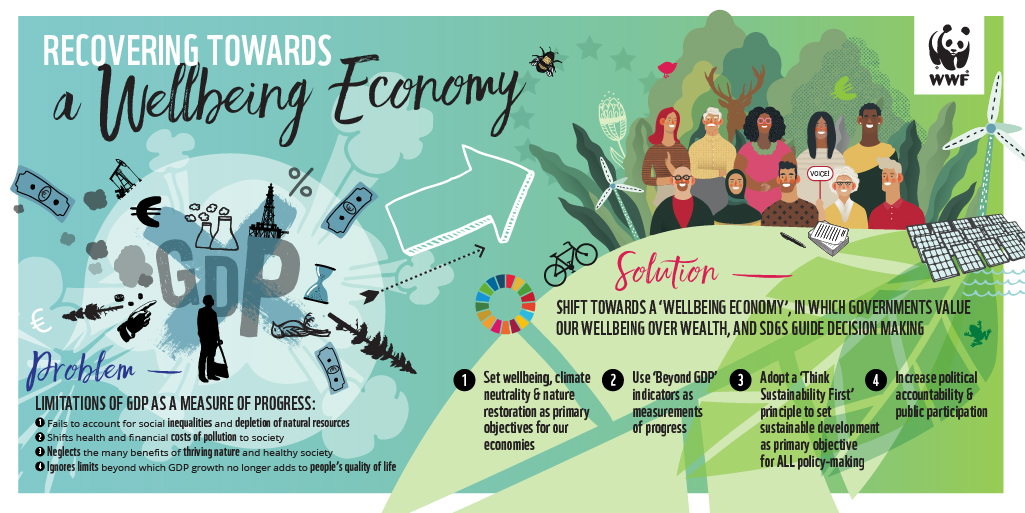Towards an EU Wellbeing Economy - A fairer, more sustainable Europe post Covid-19
Posted on September, 23 2020
A ‘wellbeing economy’ starts from the idea that public interests should determine economics, and not the other way around.
Rather than pursuing economic growth through narrowly defined indicators such as Gross Domestic Product (GDP), a wellbeing economy monitors and values what truly matters: our health, nature, education and communities. It means ‘combining the idea of prosperity with the possibility of social progress within planetary boundaries’ with the 2030 Sustainable Development Goals as the foundation.
In the European Union (EU), the economy of wellbeing has been endorsed by the Council of the EU in October 2019 and by the European Economic and Social Committee (EESC) in January 2020. Once embedded in the EU’s actions, it has the potential to put Europe on a sustainable path to 2030.
With this report, WWF is calling for the EU to adopt a Wellbeing Economy strategy, with the SDGs acting as a guiding tool.
Concretely, the EU should take a series of actions through which it can formulate an effective response to several challenges at once. This can help:
• Balance the social, environmental and economic dimensions of the recovery from the current health and economic crises;
• Respond to the calls from the EU Council for a common EU approach to the economy of wellbeing;
• Provide an EU strategy for implementing the 2030 Sustainable Development Goals, five years after their international adoption.
With this report, WWF is calling for the EU to adopt a Wellbeing Economy strategy, with the SDGs acting as a guiding tool.
Concretely, the EU should take a series of actions through which it can formulate an effective response to several challenges at once. This can help:
• Balance the social, environmental and economic dimensions of the recovery from the current health and economic crises;
• Respond to the calls from the EU Council for a common EU approach to the economy of wellbeing;
• Provide an EU strategy for implementing the 2030 Sustainable Development Goals, five years after their international adoption.

